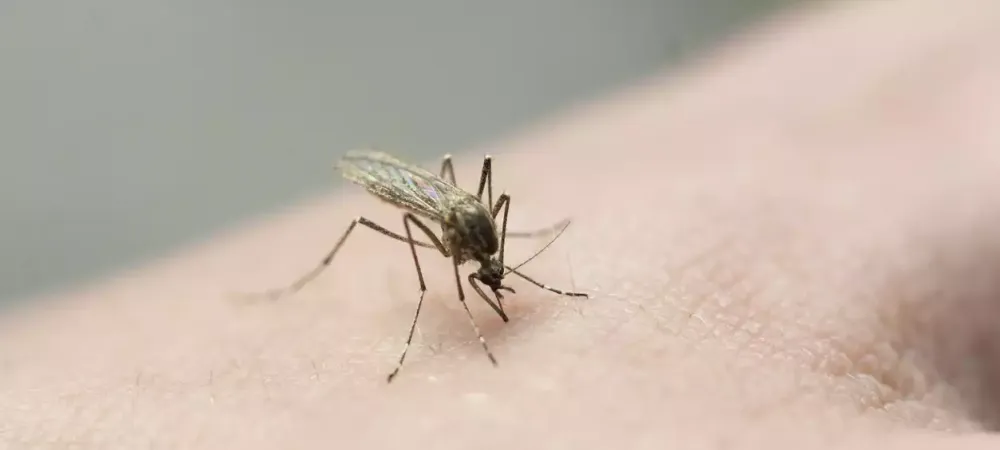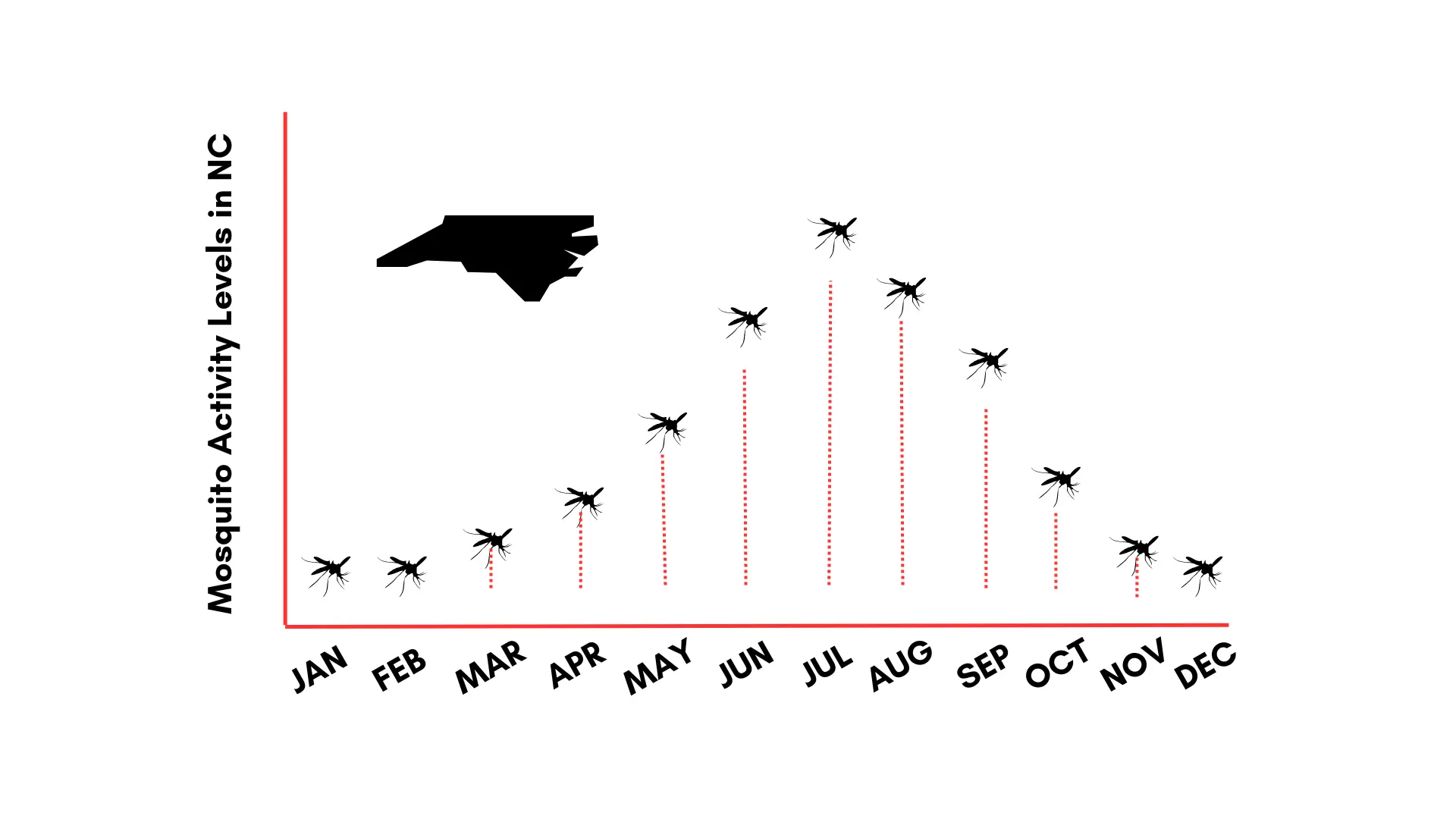When is Mosquito Season in North Carolina?

As a homeowner in North Carolina, one of the challenges you'll likely face is dealing with mosquitoes. These insects can not only be a nuisance but also carry diseases like West Nile virus and Zika virus. To better manage mosquito exposure, it's crucial to understand when they are most active and how to minimize encounters.
What Time Of Year Are Mosquitoes Most Active?
Mosquito activity in North Carolina varies throughout the year, influenced by temperature, humidity, and precipitation. Generally, the mosquito season in North Carolina spans from spring to fall, with peak activity occurring in the warmer months.
- Spring (March to May): Mosquito activity starts to increase in spring as temperatures rise and rainfall becomes more frequent. Breeding sites such as stagnant water sources, puddles, and containers become more conducive to mosquito reproduction during this time.
- Summer (June to August): Summer marks the peak of mosquito activity in North Carolina. Warm temperatures and high humidity create ideal conditions for mosquitoes to thrive. During this period, mosquitoes are most active during dawn and dusk, seeking blood meals to nourish their eggs.
- Fall (September to November): As temperatures begin to cool in fall, mosquito activity gradually decreases. However, mosquitoes can remain active until the first frost, especially if temperatures remain mild. Fall is also a time when certain mosquito species, like Aedes albopictus (Asian tiger mosquito), may still be prevalent.
- Winter (December to February): Mosquito activity significantly declines during the winter months due to low temperatures. However, it's important to note that some species can overwinter as eggs, larvae, or adults in protected environments, ensuring their presence in the following spring.
Here is a visual representation of general mosquito activity month to month in North Carolina:

What Time Of Day Are Mosquitoes Most Active?
Aside from seasonal fluctuations, mosquito activity also varies throughout the day. Understanding these daily patterns can help homeowners plan outdoor activities more effectively.
- Morning: Mosquitoes are typically less active during the early morning hours, especially when temperatures are cooler.
- Daytime: Mosquito activity tends to be lower during the heat of the day, particularly in direct sunlight. Mosquitoes prefer shaded, humid areas and may seek refuge from the sun during this period.
- Evening: Evening and dusk are prime times for mosquito activity, especially during the warmer months. Mosquitoes are most active during these hours as they search for blood meals.
- Night: While some mosquito species are active at night, such as those that breed in standing water, overall activity tends to decrease compared to the evening hours.
How To Prevent Mosquito Bites
To reduce mosquito encounters and protect yourself and your family from bites and potential diseases, there are several DIY mosquito prevention methods you could try. If mosquito infestations persist despite preventive measures, consider consulting with pest control experts who can assess your property and recommend targeted solutions. Learn more about Wolfpack Pest Control's comprehensive mosquito control program to keep your yard mosquito-free all summer long. Get started with a free quote today!
